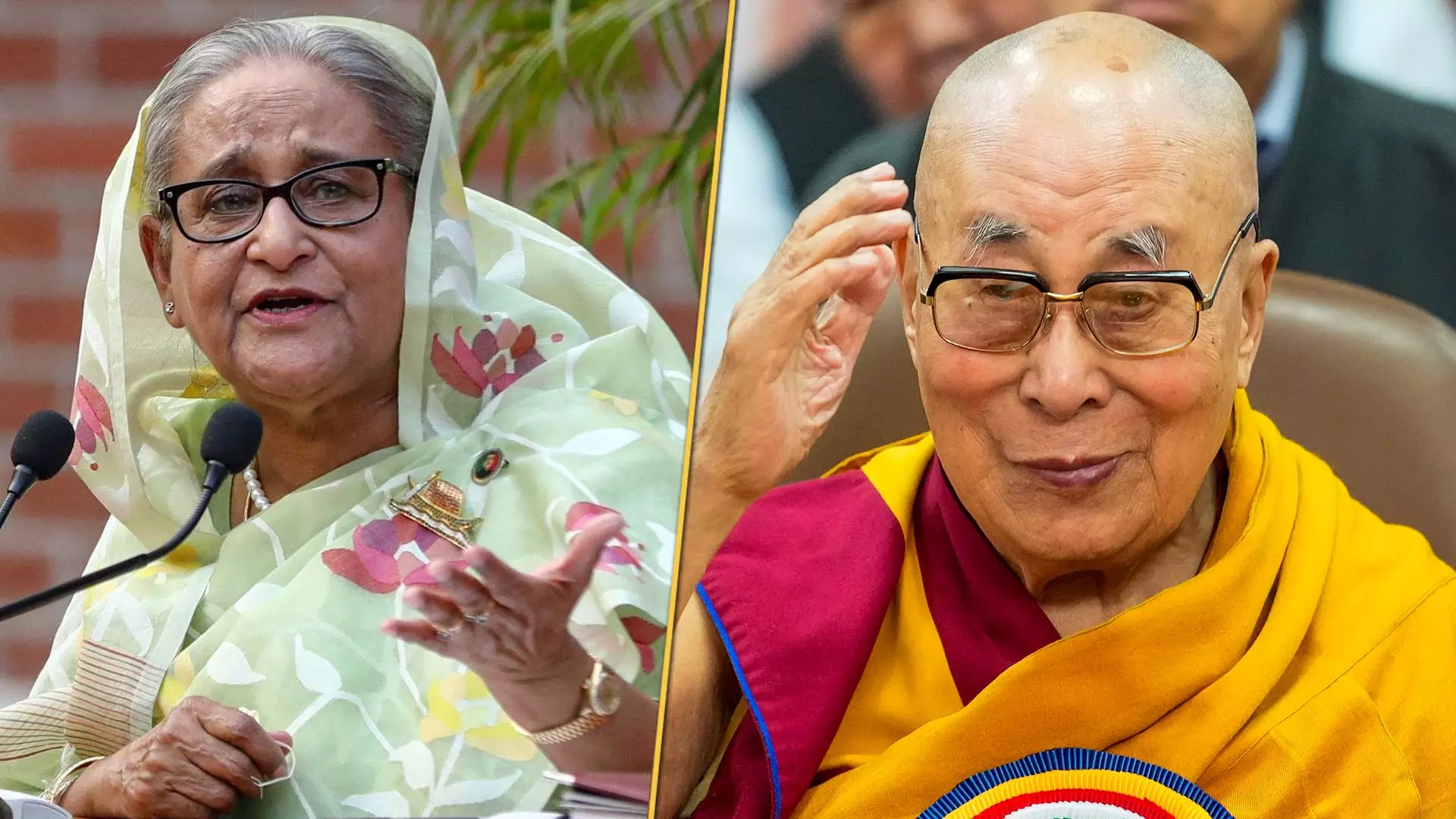
- Home
- India
- World
- Premium
- THE FEDERAL SPECIAL
- Analysis
- States
- Perspective
- Videos
- Sports
- Education
- Entertainment
- Elections
- Features
- Health
- Business
- Series
- In memoriam: Sheikh Mujibur Rahman
- Bishnoi's Men
- NEET TANGLE
- Economy Series
- Earth Day
- Kashmir’s Frozen Turbulence
- India@75
- The legend of Ramjanmabhoomi
- Liberalisation@30
- How to tame a dragon
- Celebrating biodiversity
- Farm Matters
- 50 days of solitude
- Bringing Migrants Home
- Budget 2020
- Jharkhand Votes
- The Federal Investigates
- The Federal Impact
- Vanishing Sand
- Gandhi @ 150
- Andhra Today
- Field report
- Operation Gulmarg
- Pandemic @1 Mn in India
- The Federal Year-End
- The Zero Year
- Science
- Brand studio
- Newsletter
- Elections 2024
- Events
- Home
- IndiaIndia
- World
- Analysis
- StatesStates
- PerspectivePerspective
- VideosVideos
- Sports
- Education
- Entertainment
- ElectionsElections
- Features
- Health
- BusinessBusiness
- Premium
- Loading...
Premium - Events

Delhi faces increasing pressure from China over Dalai Lama's succession and from Bangladesh for ousted Sheikh Hasina's continued presence on Indian soil
Maintaining a delicate balancing act between warring nations Iran and Israel in West Asia or between Russia and the West over Putin's war in Ukraine is a huge challenge for Indian diplomacy.
But now, it is confronted with a more direct challenge over the presence on Indian soil of not one but two regional leaders in exile — Tibetan spiritual leader Dalai Lama and ousted Bangladesh Prime Minister Sheikh Hasina.
Visibly upset China
China is visibly upset over India's stand on the Dalai Lama's statement on his succession, with Delhi insisting that the process better be left to the Tibetan leader and his community.
That such a pitch was raised by Union minister Kiren Rijjuju is doubly annoying for Beijing — Rijjuju is a Buddhist from Arunachal Pradesh, which China dubs as "Southern Tibet" and claims as its own.
Beijing's foreign office spokesperson has even taken exception to Prime Minister Narendra Modi greeting the Dalai Lama on his 90th birthday, saying China will not tolerate any interference in its internal affairs.
The current Dalai Lama had kept China on tenterhooks until the end of 2024, by saying that he was yet to decide on whether the institution of Dalai Lama would continue after his death.
Also read: China asks India to be cautious on Tibet issues after Rijiju’s remark on Dalai Lama
If no Dalai Lama...
Had he decided in the negative, there would be no succession issue and the leadership of the Tibetan community would pass on to the elected Dharamsala-based government-in-exile and the Central Tibetan Administration run by a Sikyong (president).
In fact, the Dalai Lama has already left most matters pertaining to the Tibetan community to the Sikyong and his government.
But such an authority would lack the spiritual appeal of the Dalai Lama that provides for his continued influence over the Tibetan community both inside Tibet and outside and also keeps alive the distinct identity of Tibet in the eyes of the world.
Unlike in the Dalai Lama's case where Indian support is not for political but for spiritual reasons, in Hasina’s case, it is clearly political.
A Tibetan government-in-exile would remain a challenge for China but if the institution of Dalai Lama was no more, Beijing could brand the government-in-exile as separatist and mount pressure on India to deny it sanctuary and support on its own soil.
India has recognised Tibet as an integral part of China and cannot undo it without risking its entire bilateral relationship with its northern neighbour.
Two Dalai Lamas?
Then, when the Dalai Lama firmly asserted in his book Voice for the Voiceless (published earlier this year) that his successor will have to be one born in a free world, meaning one outside China, Beijing was undeniably irked.
This was seen by it as a clever ploy to deny the Chinese government any role in the Dalai Lama’s succession, which, if it played out within Tibet, would have given it much leverage.
Having failed to undermine the institution of Dalai Lama since it occupied Tibet in the 1950s, China's Communist rulers may now try to foist on the Tibetans a Dalai Lama of its own, if the current incumbent comes up with his successor outside China.
Also read: Why a new Dalai Lama could pose problems for India too
The result: One China-backed Dalai Lama, the other created through a succession process handled by the present incumbent.
Beijing no to dialogue
Despite China branding the present Dalai Lama as "splittist", "separatist" and even a "wolf in lambskin", the Tibetan spiritual leader has avoided supporting an armed insurrection for Tibetan independence, like the one unleashed by the fierce Khampas in the late 1950s. He has sought a dialogue with Beijing to decide Tibet's future.
Despite some indications during the early part of his presidency, Xi Jinping backed off from inviting the Dalai Lama for a dialogue, perhaps to not let his strongman image suffer because that would encourage hardline dissidents to rattle his grip on the party.
Many believe such a dialogue, followed by a grant of greater autonomy and religious rights to Tibetans, would have helped China resolve a festering issue. Such solutions have been found to resolve ethnic separatism in post-colonial India but don't seem to have takers in Communist China or military-dominated Pakistan.
Implications for India
So, by all indications, the Tibetan issue will linger and drag India into it. Belatedly, there has been some progress on the border issue between India and China, but if Indian support for the Dalai Lama over the succession process irks Beijing, it could stall negotiations on the border issue and the PLA may resume its provocative salami-slicing incursions on the Himalayan frontier.
By all indications, the Tibetan issue will linger and drag India into it.
India is already somewhat alarmed by mounting Chinese pressure on Bhutan to resolve its boundary dispute on Beijing’s terms — which would involve Thimphu ceding a part of the Doklam plateau to China in return for withdrawal of Chinese claims to two valleys up north.
China eyes Doklam because it would help the PLA dominate the Siliguri Corridor connecting the Indian mainland to the North East. That led to a tense standoff between the PLA and Indian army at Doklam in 2017. Delhi made clear its reservations to Thimphu, belatedly, during Army chief Gen Upendra Dwivedi's visit to the kingdom.
Besides reopening the boundary question and making hostile moves in the neighbourhood, China could also try resuming support to insurgencies in India's north-eastern states. Not to speak of denying India critical ingredients like rare earths or APIs used for pharmaceutical products.
Also read: Can Sheikh Hasina stage a comeback as Bangladesh PM?
Hasina's presence irks Yunus
While the Dalai Lama has been in India since 1959, Bangladesh Prime Minister Sheikh Hasina has been sheltered in India since her ouster in a student-youth uprising in August last year.
During his meeting at Bangkok (on the sidelines of the BIMSTEC summit), Bangladesh interim government chief adviser Muhammad Yunus asked Indian Prime Minister Narendra Modi to rein her in. Modi ruled it out, saying it was not possible to deny her freedom of expression in the age of social media.
Bangladesh's interim government has already formally pitched for Hasina's extradition to stand trial in the countless cases filed against her. She is now being tried in absentia.
In fact, Hasina has already been convicted in a contempt of court case filed in the International War Crimes Tribunal. Her state-appointed lawyer has challenged the cases as beyond the jurisdiction of the War Crimes Tribunal because none of the alleged offences were committed during a war.
But if the Bangladesh government were to involve the Interpol to get Sheikh Hasina back to the country to face justice, India will find itself in a tricky situation. Not the least because an extradition treaty exists between the two countries, interestingly signed during Hasina's tenure.
Also read: Why Indo-Bangladesh equations remain unchanged even after Modi-Yunus meet
Yunus's worry
Hasina has continued to engage with her party leaders and activists both in Bangladesh and those who have fled to India through online apps like WhatsApp and Telegram, much to the discomfiture of the interim government.
Her verbal attacks on the Yunus regime have intensified and is seen in Dhaka as aimed at mobilising her party supporters to agitate against the interim government. She brands Yunus as one "leading an illegal government secured through force and conspiracy with help of Islamic extremists and foreign patrons".
Yunus, who enjoys close rapport with both the US and China and surely Pakistan, may make an issue of Hasina's extradition to deny the Awami League a neighbourhood base for mounting pressure on his government. With thousands of Awami League leaders and supporters in India with tacit concurrence, Yunus has reasons to worry.
In support stands India
Like in the case of the Dalai Lama, India remains in support in the case of Hasina too. Unlike in the former's case, where Indian support is not for political but spiritual reasons, in Hasina’s case, it is clearly political. Her late father Sheikh Mujibur Rahman and Hasina have been India's trusted allies and bilateral relations thrived when they were in power.
The withdrawal of support in either case will be interpreted as India's weakness—a choice unacceptable for a regional power with aspirations to play a role on the global stage under a prime minister who fancies the strongman image. But that means India will have to be ready for the consequences.
(The Federal seeks to present views and opinions from all sides of the spectrum. The information, ideas or opinions in the articles are of the author and do not necessarily reflect the views of The Federal)


